Taxi Driver (1976)
“Some day a real rain will come and wash all the scum off the streets.”
|
Synopsis: |
|
Genres, Themes, Actors, and Directors:
Response to Peary’s Review: Regardless of one’s view on the film’s unexpected ending — which I see as an appropriately bizarre capstone to the dizzying parable that’s come before, akin to the controversial ending in Scorsese’s later King of Comedy (1982) — there is much to admire in Taxi Driver, including uniformly excellent performances by all involved — including Foster as a remarkably self-assured preteen hooker: … Harvey Keitel as her creepy pimp: Cybill Shepherd as a WASP-y electioneer (De Niro’s love interest): … and (despite Peary’s guarded protestations) De Niro himself in the title role. While his infamous “You talkin’ to me?” mirror scene is deservedly lauded (De Niro is indeed “terrifying” during this moment): … his entire characterization of Travis Bickle is fascinating to watch, as Bickle gradually descends into righteous madness, driven by a complex cocktail of PTSD, sleeplessness, headaches, and a confused moral compass. (Interestingly, we never learn why Bickle — a Vietnam vet — was discharged from the army, but he’s clearly deeply damaged, and remains alienated from those around him — as evidenced most clearly in his futile attempt to turn to a colleague, Peter Boyle, for help). While Taxi Driver is undeniably a violence-filled movie, Peary accurately notes that many of the film’s “best moments” are those without violence — such as the “surreal rides De Niro takes in his cab”, which (thanks in large part to cinematographer Michael Chapman) are “beautifully shot mood pieces”; as Peary points out, “no director has better captured the peculiarly wretched feel and odor, as well as the look, of the underbelly of New York.” Another of my favorite scenes (among many) shows Jodie Foster picking at a grilled cheese sandwich while defending her lifestyle in front of De Niro’s incredulous Bickle; it’s clear that Bickle’s noble obsession to “rescue” her from her pimp — much like John Wayne’s quest to rescue Natalie Wood from her Indian captors in The Searchers (Peary calls out this parallel in his review) — will be met with a decided lack of gratitude, further complicating this enigmatic tale of a self-made redeemer in search of “justice”. Redeeming Qualities and Moments:
Must See? Categories (Listed in 1001 Movies You Must See Before You Die) Links: |
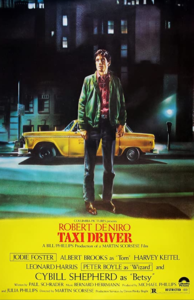
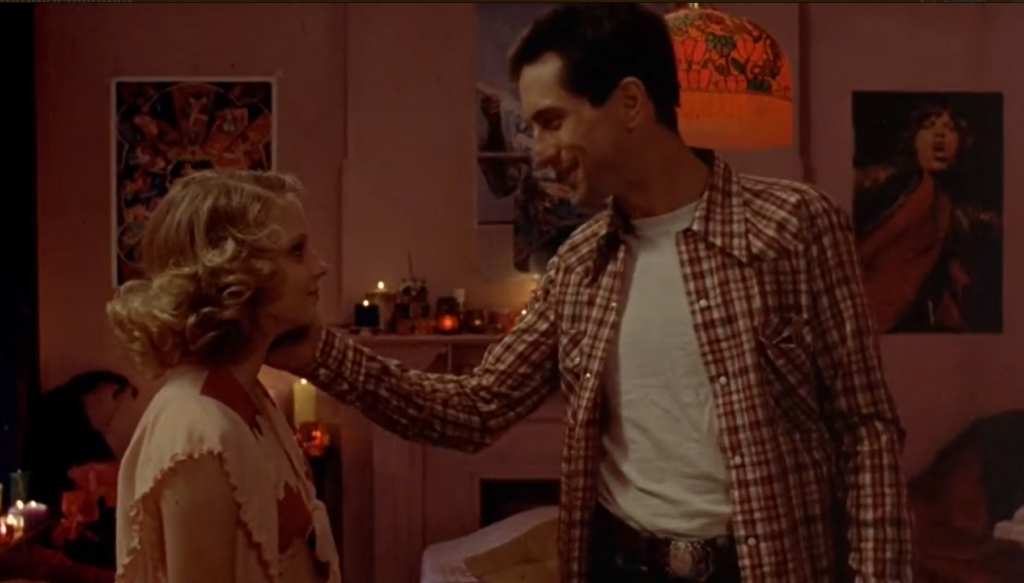
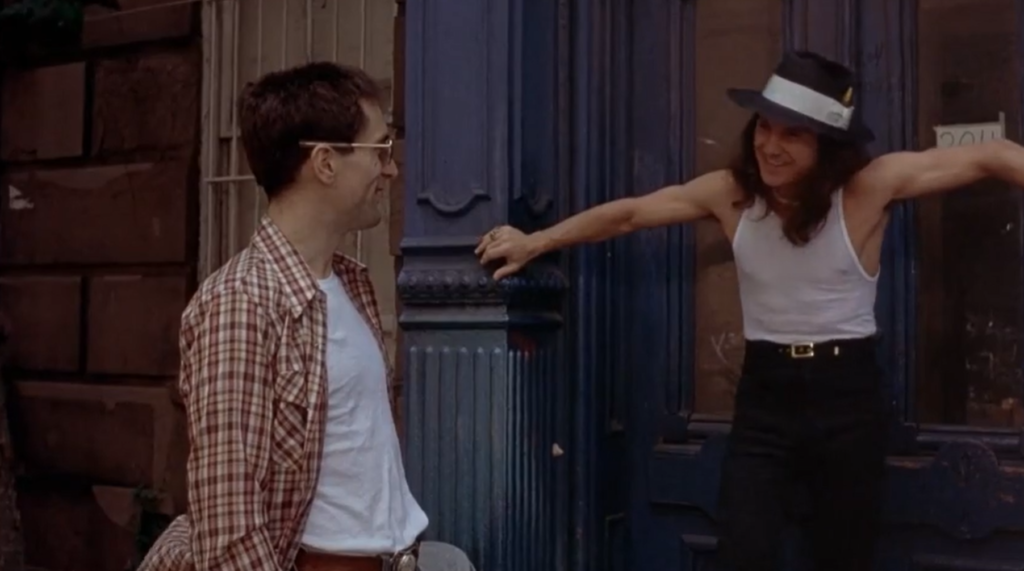
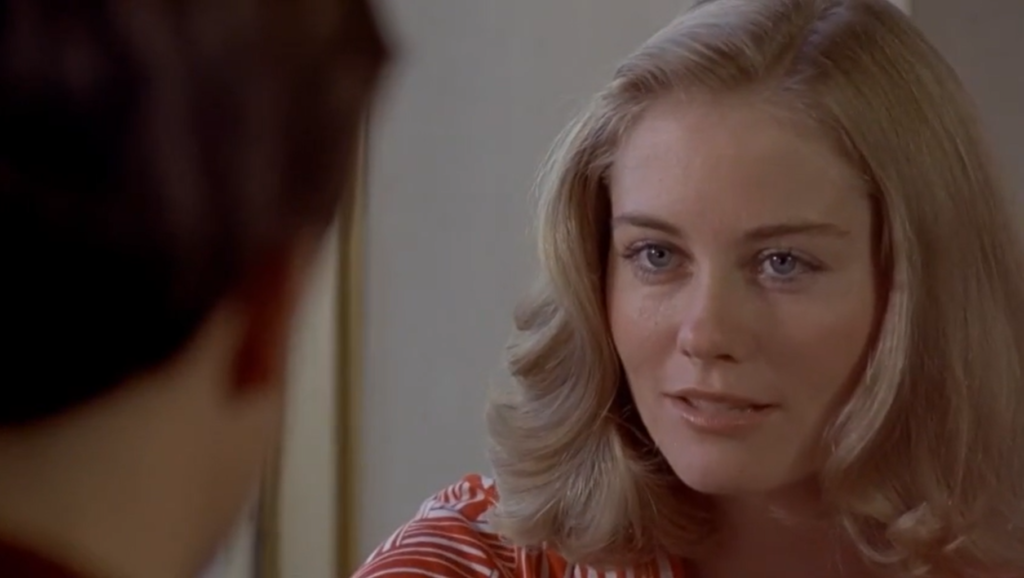
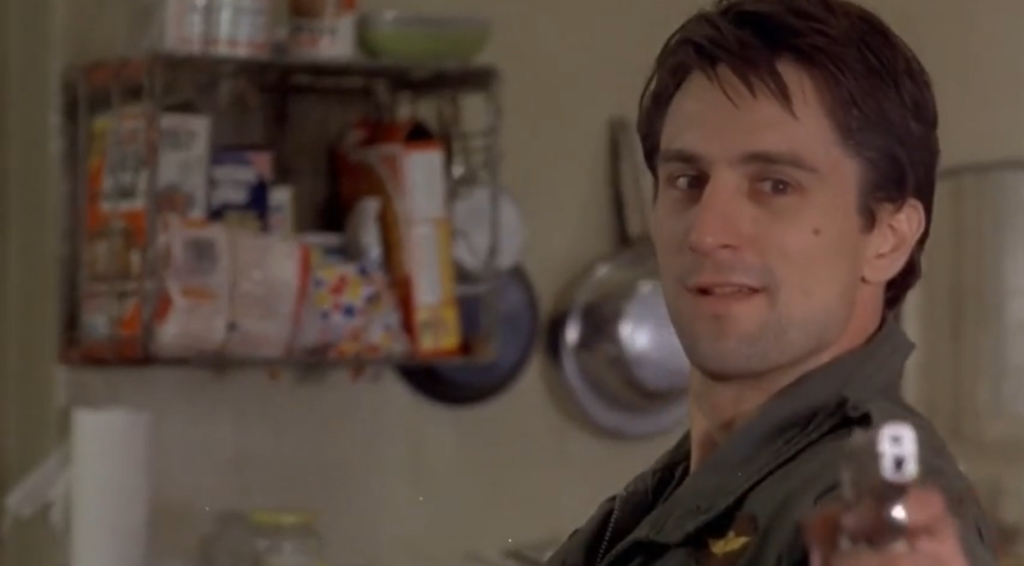
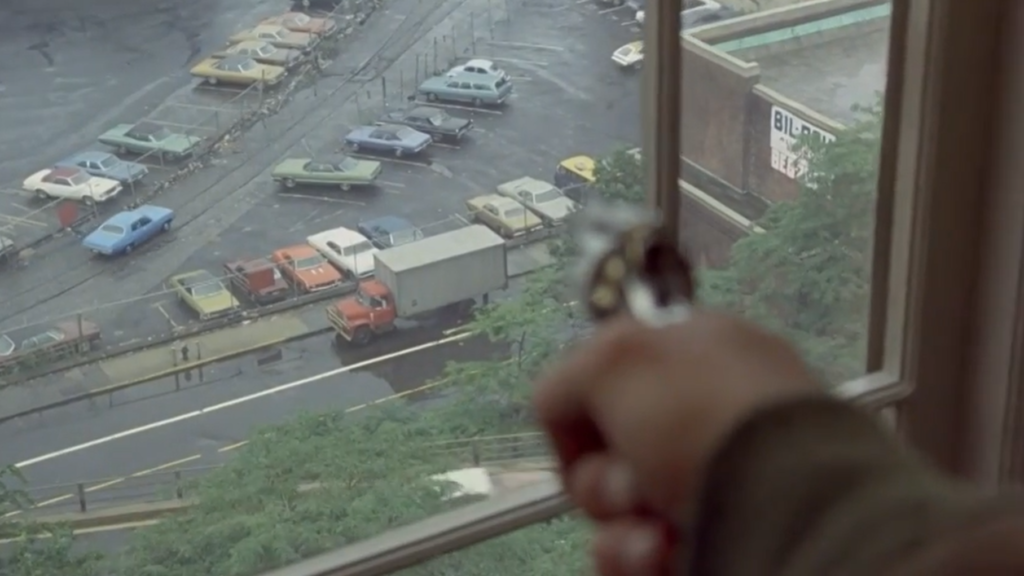
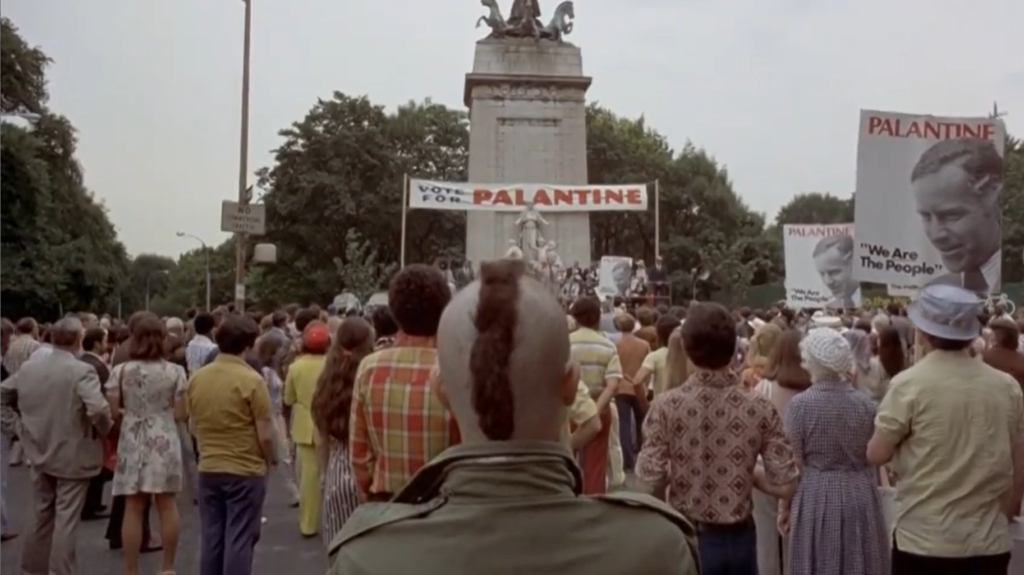
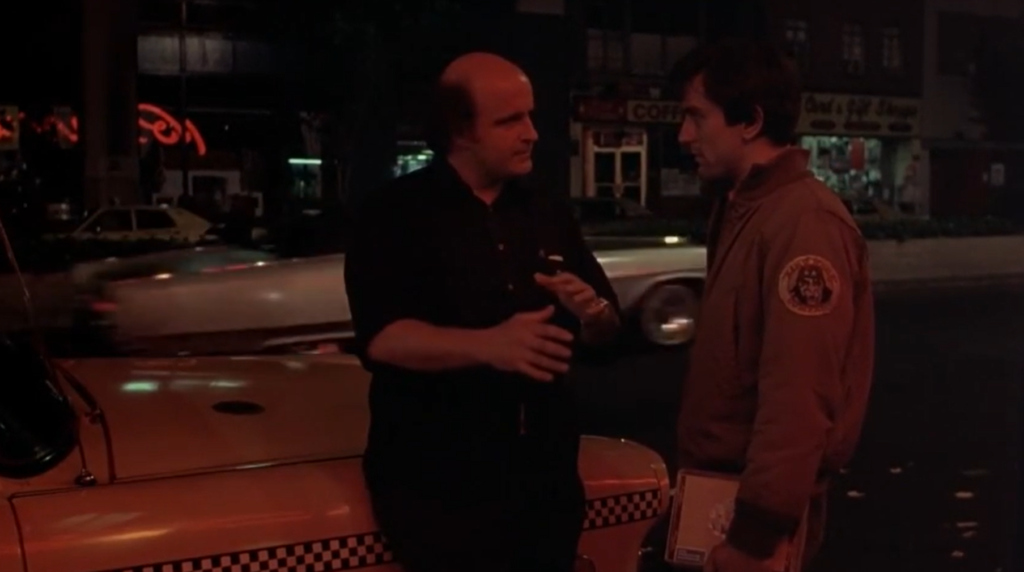
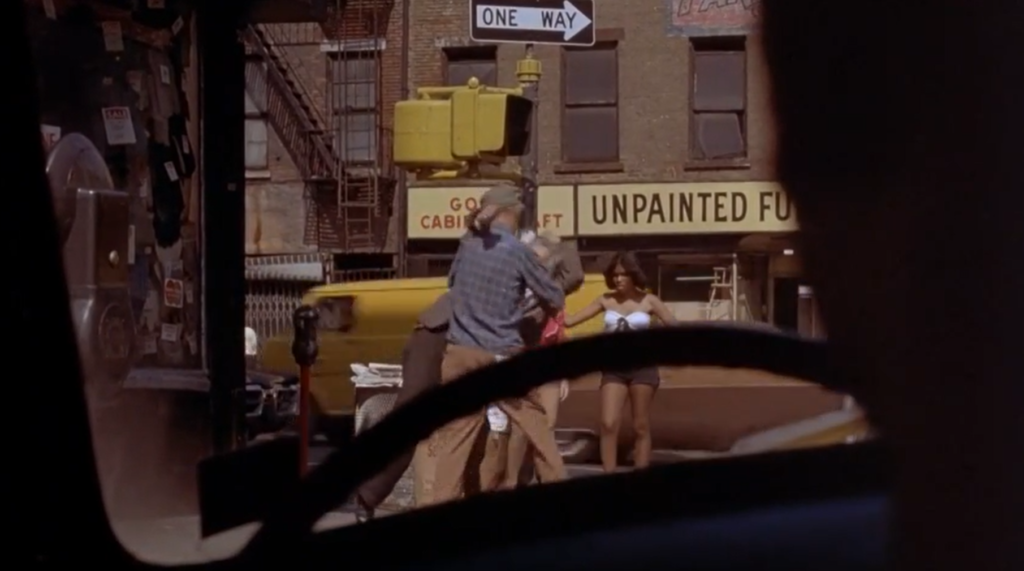
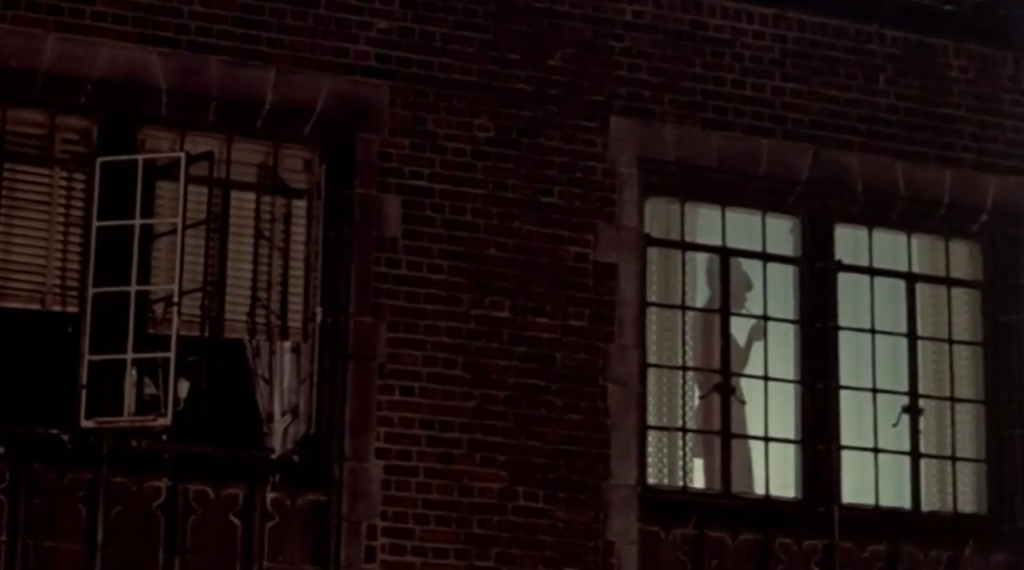
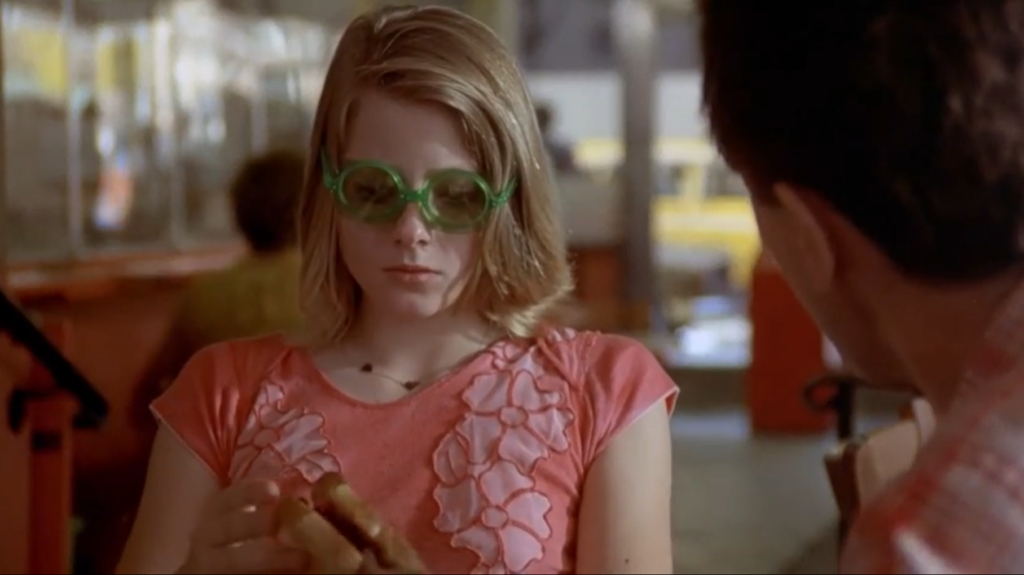
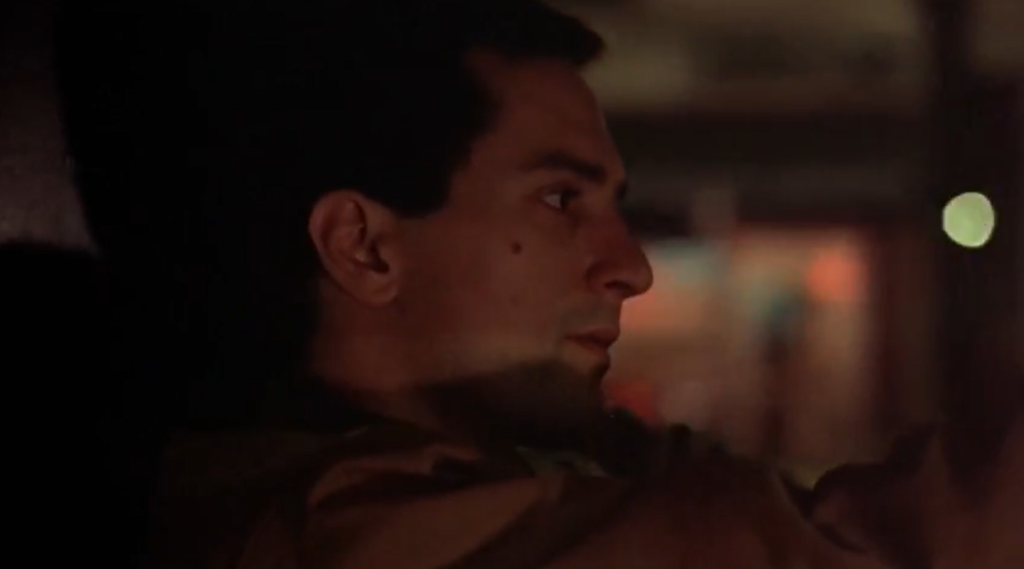
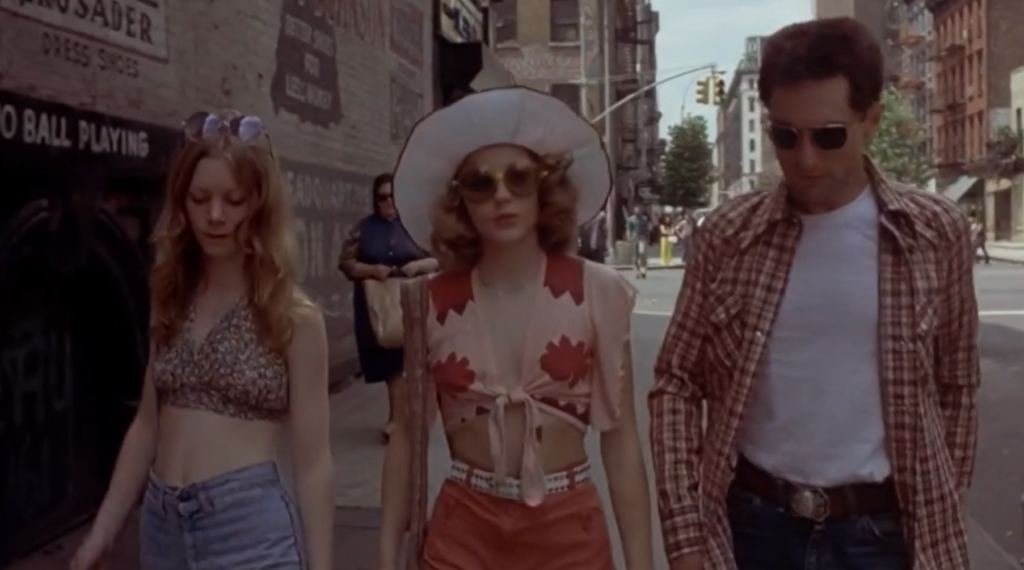
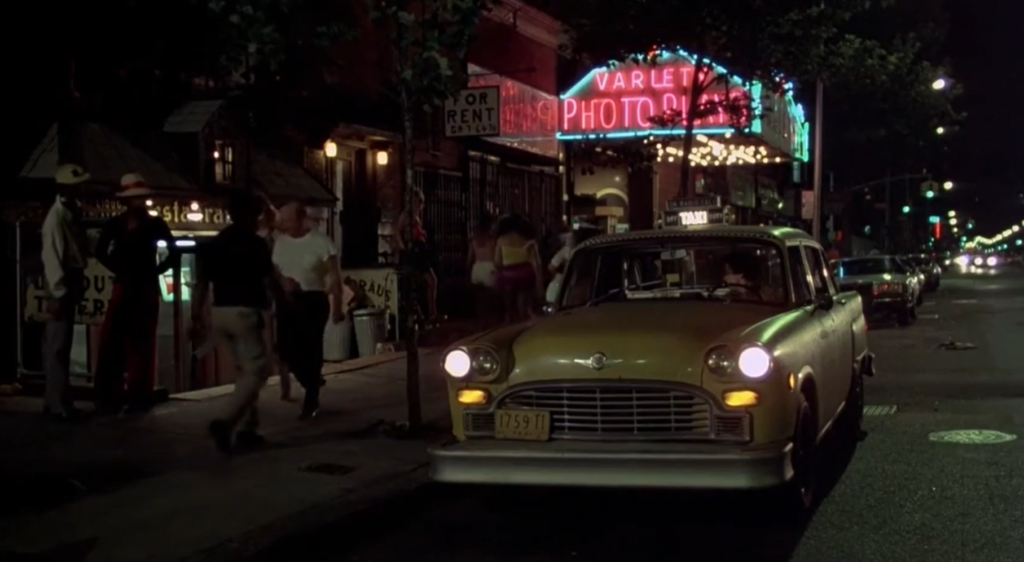
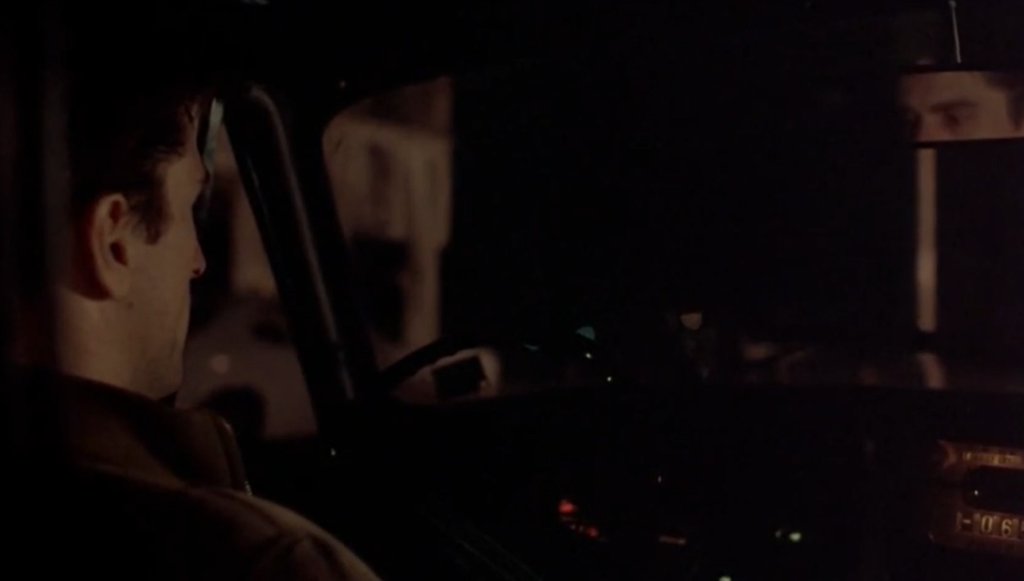
2 thoughts on “Taxi Driver (1976)”
A must, of course, for many reasons, but not at all an easy watch.
In fact, sometime back, after I’d seen the film a number of times over the years, I privately said to myself, “That’s it; after this, I can’t watch this movie again.”; a thought that rarely comes to me, esp. when I think it’s a film worthy of attention and study.
If you aren’t already, ‘Taxi Driver’ is one film that can easily depress you. It’s just too intense; its worldview is too dark.
I first saw this when it was released (at a shopping mall, with David Z.). It was during my last semester at college and I had already decided to move to New York City. As I watched, the film became a litmus test for whether I would hold to my decision to go.
I went. And the NYC of ‘Taxi Driver’ was the one I often witnessed (i.e., the steam up from manhole covers, the undesirables standing in doorways, the kind of – I don’t know – seedy romanticism captured in Herrmann’s indelible score). ‘TD’ did serve as a warning to be careful there.
It can’t be denied that this is a remarkable work, and probably genius stuff. As noted, the actors are “uniformly excellent”, esp. leads De Niro, Foster and Keitel. Shepherd is surprisingly competent, Boyle lends fine support and Albert Brooks proves well-cast in a non-comic role.
Two memorable sequences not mentioned:
– De Niro takes Shepherd to a porn movie – on a date!
– Scorsese (in a cameo) is one of De Niro’s passengers; they park outside Scorsese’s wife’s apartment building, and Scorsese chillingly relates his intent to murder her.
I Like Robert De Niro’s Performance As Travis Bickle.